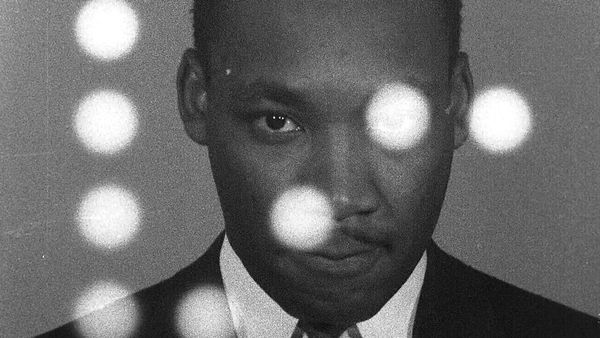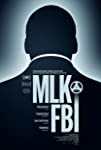Eye For Film >> Movies >> MLK/FBI (2020) Film Review
MLK/FBI
Reviewed by: Sunil Chauhan

At the end of MLK/FBI, we learn that the FBI’s recordings of Martin Luther King’s most private moments will be made available in 2027. Sam Pollard’s fine documentary doesn’t feature any of the audio recorded by the FBI in the five-year period it wiretapped the phones of King and those in his circle (that will deserve a documentary of its own), tapes that were sent to King’s own wife to intimidate him, but chronicles the events that led to increased surveillance of the leader, and the war the FBI waged on King, branding him the “most dangerous negro to the future of America”.
Utilising a wonderful archive of film clips (scenes from films such as 1959’s James Stewart-starrer The FBI Story remind how Hollywood has shaped our view of the FBI), Pollard casts fresh light on the Bureau’s attempts to discredit King as a threat to the American social order as well as the organisation’s inner workings.

King might have since been cast in the political memory as a noble vessel of peace, in contrast to figures such as Malcolm X, but Pollard’s film demonstrates how he was greeted with suspicion by FBI leader J Edgar Hoover. It’s a story of how the American establishment (Bobby Kennedy signed off on the FBI wiretapping King) sought to surveil, intimidate and silence dissent, even those who expressly endorsed peaceful protest.
Based on the book The FBI and Martin Luther King, Jr: From ‘Solo’ to Memphis, Pollard shows how initial surveillance of King as a somewhat routine procedure snowballed into something akin to a vendetta on the part of Hoover. When tapes revealed King was no faithful husband, the FBI saw them as a potential dynamite stick to explode his saint-like footing.
While historian Beverly Gage points out that people enjoy the sight of hallowed public figures being wrenched from their pedestals, Pollard chronicles the persistence and relish Hoover took in expending FBI manpower to achieve it, as well as how King often trod a delicate political line. When the Communist sympathies of King advisor Stanley Levinson are revealed, the Bureau is incensed when King refuses to distance himself. Later, when King finally denounces the Vietnam war after a protracted 18-month silence on the matter, it leads to severe criticism in all quarters of the press and protests, with one protester’s placard reading, “MLK at Commie Training School”.
Not unlike Asif Kapadia’s Maradona, MLK/FBI achieves its power through a tense accretion of flowing archive imagery and incisive narration. But it leaves aside the thornier tangents that might get in the way of its visual momentum, namely the question of whether a man’s private life can undo his public work. Gage asks if by drawing attention to material such as that in the FBI vault, you become complicit, but Pollard doesn’t offer a chance to consider that dilemma. He takes a morally reserved stance, one more in line with the era in which its events happened. But if MLK/FBI is cautious around the personal (at least until the very final 10 minutes, where hitherto invisible narrators are revealed onscreen to offer their thoughts), it does inspire a timely reappreciation of King’s sagacity.
Reviewed on: 15 Jan 2021
















